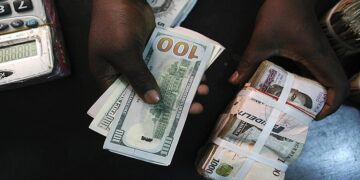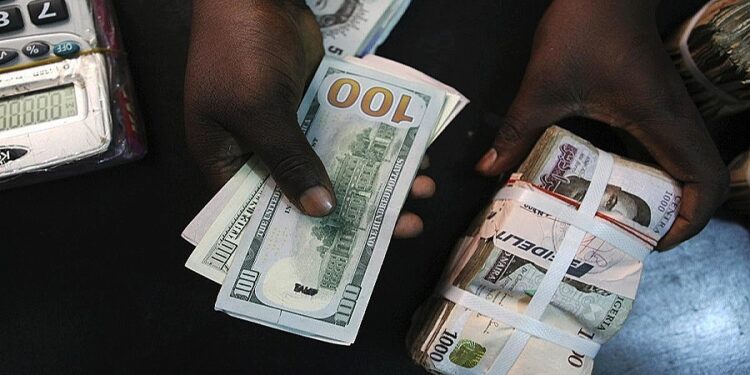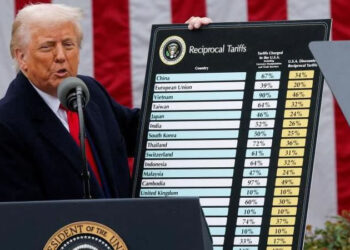By John Ikani
The Naira on Tuesday exchanged at N441.17 to the dollar at the Investors and Exporters window, a depreciation of 0.46per cent, compared with N439.17 to the dollar at the close of business on Oct 11.
The depreciation marks the first time in history that Nigerians will be paying above N440 to buy a dollar at the official rate.
The open indicative rate closed at N439.40 to the dollar on Tuesday.
An exchange rate of N414 to the dollar was the highest rate recorded within the day’s trading before it settled at N441.17.
At the black market, the exchange rate between the naira and the US dollar traded at an average of N730/$1 on Tuesday, representing a 0.14% appreciation from N731/$1 recorded on Monday.
The naira at the cryptocurrency peer-to-peer FX market depreciated marginally by 0.12% to trade at a minimum of N732.8/$1 on Tuesday morning, against N731.94/$1 traded at the same time on Monday, 10th October 2022.
In the same vein, the exchange rate between the naira and the US dollar at the I&E official window depreciated to its lowest level, falling by 0.58% to close at N439.17/$1 on Friday, 7th October 2022, compared to N436.63/$1 recorded on Thursday.
What you should know
Nigeria’s primary source of foreign exchange earnings, crude oil, has become a source of worry as the industry crisis continues to overwhelm the players, adding to the country’s economic woes.
Oil and gas contributed 90% of Nigeria’s foreign exchange earnings in the first quarter of 2022, a significant dependency for Nigeria’s forex stability. The rise in oil and gas inflows is correlated to a stronger naira and vice n versa.
Crude oil still made up 80% of Nigeria’s exports in the second quarter of 2022 amid high oil theft.
The Central Bank of Nigeria’s Monetary Policy Committee acknowledged in Q1 that the impact of rising oil theft on the economy is preventing the country from building up its foreign reserves.
As Nigeria’s primary export, when we earn less from earns, it bodes a dearth of foreign exchange, especially US dollars. Attracting foreign Investments has been impacted by the experience of businesses and investors finding it difficult to repatriate funds due to forex scarcity. This has been a detrimental effect on the naira.




































